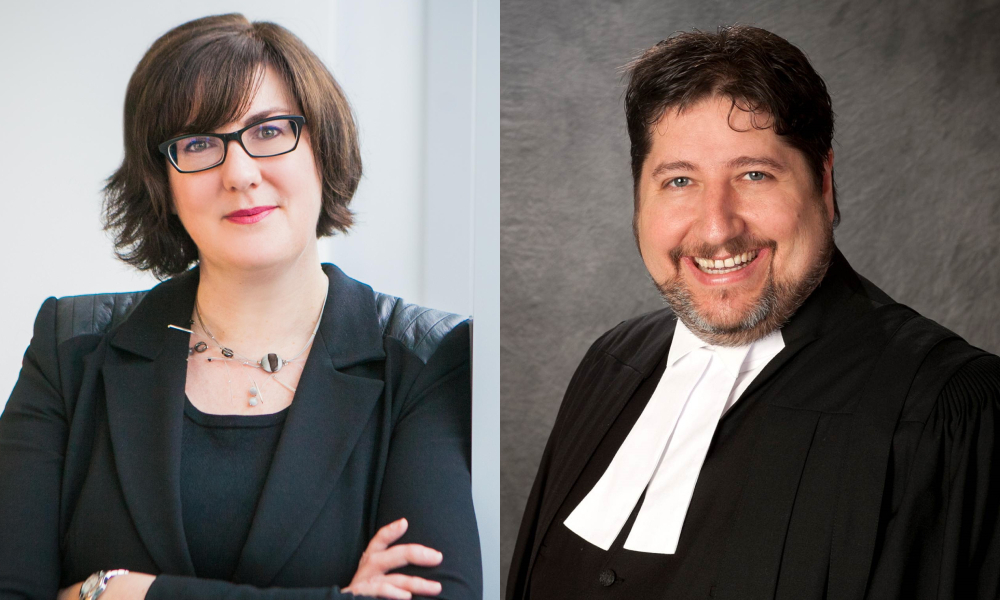
Critics say the motion is a ‘crowd pleaser’ that flouted Law Society process

Convocation will vote Thursday on a motion proposing annual licensing fees be reduced by 25 per cent for 2021.
Proponents say the measure is a necessary lifeline for lawyers who have seen their practices shrink because of COVID-19, social distancing and court and tribunal closures. Opponents say the motion is a publicity stunt that was brought out of line with LSO processes.
Benchers Marian Lippa and Geoff Pollock brought the motion September 1. The motion states that with the court system effectively closed and the “devastating financial impact” on private practice, it is of “critical importance” to the public and access to justice that lawyers remain financially viable.
“What our motion has attempted to do is provide hope – meaningful hope – for the profession, to say we understand your problems,” Pollock told Law Times. “We empathize with the plight that you have gone through. Help is on the way. Reinforcements are on route.”
“Now is the time that we need to move with a sense of urgency and purpose.”
Jonathan Rosenthal is a criminal defence lawyer and Bencher and will be voting against the motion. He agrees that COVID-19 and court closures have decimated many practises, especially in his own field. But to cut fees by 25 per cent, across the board, is irresponsible considering 40 per cent of lawyers and 50 per cent of paralegals are not in private practice and have not been financially impacted by COVID-19, he says. He adds that, before the motion was filed, the Law Society had arranged to allow all lawyers and paralegals to defer fees. The audit and finance committee has also been exploring ways to provide relief to the licensees who have been hurt by the pandemic, and will continue to do so, he says.
“What the Law Society attempted to do is see how we can help the licensees that need our help, but not waste resources on helping those who don't need our help,” he says.
The 25 per cent reduction would amount to around $45-per-month for a lawyer and $25-per-month to a paralegal, which would not rescue a failing practice, says Rosenthal.
“Certain benchers, who have wanted to cut Law Society fees for a long time are sadly using the COVID-19 pandemic to raise that issue. And I think that is really – with great respect –despicable.”
Pollock says that he acknowledges public-sector workers have not been affected by COVID-19, but that crafting a response where different licensees have different fees is a “dangerous road to go down.”
“I do not think that the government – either the federal, provincial or municipal governments – would take kindly to if everyone else had a drop in their dues and their fees, and their lawyers did not,” he says.
The pandemic’s impact on paralegals has been uniquely devastating because of their scope of practice, says Marian Lippa, who seconded the motion. The light at the end of the tunnel remains out of sight as there is no word on when courts and tribunals will be operating at full capacity, she says.
“Many are struggling to stay afloat, and many have already shut down their practices. We cannot continue to warrant such a large budget if we face a shortage of paralegals and lawyers paying fees in order to fund it.”
Megan Shortreed, Bencher and partner at Paliare Roland Rosenberg Rothstein LLP, says the motion for the fee reduction was brought outside the budgeting procedure.
“It calls for a cut to revenues without regard whatsoever to expenses or specifying which operations and programs should be cut. And, in my view, that is not a prudent approach,” says Shortreed.
Pollock says the motion was brought in line with Law Society rules. Twenty days before Convocation, both Pollock and Lippa emailed an executed copy of the motion to the Secretary and copied the Treasurer, he says.
“The motion was done the way all motions are done,” Pollock says. “… The Law Society rules were followed to a tee… The rules are you must give written notice of any motion 20 days before convocation.”
Shortreed says the appropriate forum to consider a reduction in fees is when the budget is considered by the audit and finance committee, “before the end of the year but not in September.”
“Many Benchers, including myself, support rationalizing fees,” she says. “And if you've been watching Convocation, you'll know that I voted in favour of last year's budget, which reduced fees. And I've moved and seconded several motions in June and August at convocation directed at cost cutting and streamlining Law Society operations. And so all of those things are being discussed, and by Benchers in committee before the 2021 budget.”
Ask licensees if they would like a fee reduction and 100 per cent are likely to say yes, she says. But that needs to be discussed “in the context of the important statutory mandate” Benchers have, she says.
Rosenthal says bringing the motion without advance notice to the Treasurer, CEO and audit and finance committee is comparable to a Member of Parliament submitting their own budget without notifying the Prime Minister.
“If Benchers Lippa and Pollock believe this is the way a motion ought to be brought they both need a refresher on board governance,” says Rosenthal.
While critics of the motion say it will require scaling back Law Society functions, Pollock says making ends meet with the 25-per-cent cut is “realistic, achievable, yet a challenge.” The LSO recently received a $15 million payment from LawPRO – the return of capital the Law Society provided as a financial cushion when LawPRO was founded – and Pollock says that money “would take us a long way there.”
“We could use this money specifically for the fee reduction for next year,” he says. “I have heard this called the ‘rainy day fund.’ And I would suggest that the rains have never been stronger.”